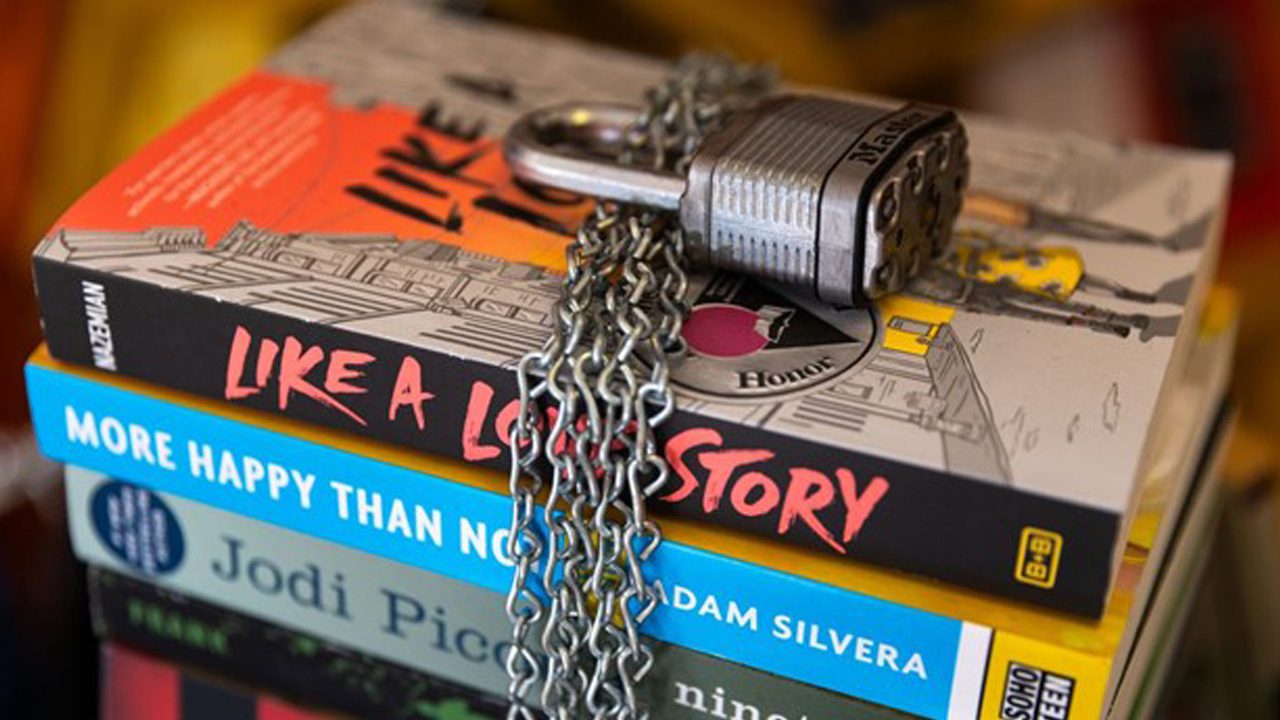PEN America: Books bans doubled in 2023-2024 school year, most from Florida, Iowa
The Florida Times-Union | By C. A. Bridges | September 24, 2024
In the 2022-2023 school year, Florida led the nation in the surge of book challenges and bans, according to free expression advocacy group PEN America. This year, the number of bans has more than doubled.
Research by the nonprofit organization found more than 10,000 instances of book bans across the country, with 8,000 of them from Florida and Iowa, according to preliminary findings released Monday at the start of Banned Books Week. This was largely due to new state laws, PEN America’s Kasey Meehan and Sabrina Baêta said.
Florida’s HB 1069, which went into effect July 2023, required that any book challenged for “sexual conduct” must be removed during the review process and empowered parents and guardians to challenge books without providing ways for parents or guardians to defend them. That led to a “significant rise in book bans” during the 2023-2024 school year, PEN America said.
Iowa’s new SF 496 included similar restrictions to Florida’s so-called “Don’t Say Gay” ban, as well as a prohibition on any mention of a “sex act” or gender content, leading to thousands of book bans compared to just 14 throughout 2021-2023.
‘We also observed how cases of book bans increasingly target stories by and about women and girls and/or that include depictions of rape or sexual abuse,” PEN America said. The previous surge largely targeted books by or about LGBTQ+ people, Black people, Indigenous people and other people of color, studies found.
Many of the challenged books were those that have been targeted for years, such as “The Color Purple” by Alice Walker, “Nineteen Minutes” by Jodi Picoult and “The Bluest Eye” and “Beloved” by Toni Morrison. New books showing up in challenges have included “Roots: The Saga of An American Family” by Alex Haley, “A Tree Grows in Brooklyn” by Betty Smith, “How Stella Got Her Groove Back” by Terry McMillan, “Black Reconstruction in America, 1860-1880” by W.E.B. DuBois, “Death on the Nile” by Agatha Christie and “The Kitchen God’s Wife” by Amy Tan, among others.
Some people are pushing back, with several lawsuits against the state. Six major book publishers and several prominent authors including John Green, Julia Alvarez and Angie Thomas have sued Florida over “unconstitutional book banning,” and as part of an out-of-court settlement in a different suit, one school district was forced to return some banned books back to library shelves this month.
How does PEN America define a book ban?
PEN American has a more general definition of “book ban” than the state of Florida uses. PEN America defines a banned book as one that has been removed from easy student access. The state of Florida defines book bans as books the state has specifically blocked from schools.
Book ban laws spreading across US
Other states have also enacted new legislation that have led to increased bans.
- Utah: Under HB 29, once any three districts find a book to be “objectionable material,” it must be banned in all schools. That allows three overly restrictive school boards to control what every student in the state can read.
- South Carolina: Regulations 43-170 prohibits books with sex-related content and allows the state Board of Education to ban books statewide.
- Tennessee: HB 843 expands the Age-Appropriate Materials Act of 2022 requires schools to remove books that contain nudity, “excess violence,” or sex-related content and empowers a state commission to evaluate and ban books statewide.
The Top Ten banned books of 2023
The most frequently challenged books of 2023 in the U.S., according to the American Library Association, were:
- “Gender Queer,” by Maia Kobabe. Why? LGBTQIA+ content, claims of sexually explicit material
- “All Boys Aren’t Blue,” by George M. Johnson Why? LGBTQIA+ content, claims of sexually explicit material
- “This Book is Gay,” by Juno Dawson Why? LGBTQIA+ content, sex education, claims of sexually explicit material
- “The Perks of Being a Wallflower,” by Stephen Chbosky Why? Claims of sexually explicit material, LGBTQIA+ content, rape, drugs, profanity
- “Flamer,” by Mike Curato Why? LGBTQIA+ content, claims of sexually explicit material
- “The Bluest Eye,” by Toni Morrison Why? Rape, incest, claimed to be sexually explicit, EDI (equity, diversity, and inclusion) content
- (TIE) “Me and Earl and the Dying Girl,” by Jesse Andrews Why? Claims of sexually explicit material, profanity
- (TIE) “Tricks,” by Ellen Hopkins Why? Claims of sexually explicit material, drugs, rape, LGBTQIA+ content
- “Let’s Talk About It,” by Erika Moen and Matthew Nolan Why? Claims of sexually explicit material, sex education, LGBTQIA+ content
- “Sold,” by Patricia McCormick Why? Claims of sexually explicit material, rape






